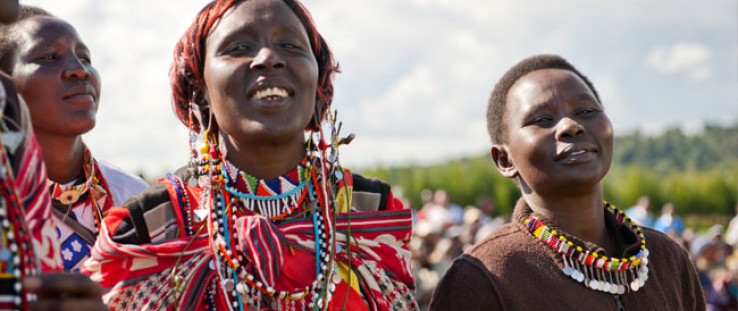 Parakuo Naimodu, center, graduates from the Justice Project training, with Caroline Lentupuru, a gender resource specialist with Landesa, at right.
DEBORAH ESPINOSA
Parakuo Naimodu, center, graduates from the Justice Project training, with Caroline Lentupuru, a gender resource specialist with Landesa, at right.
DEBORAH ESPINOSA
 Parakuo Naimodu, center, graduates from the Justice Project training, with Caroline Lentupuru, a gender resource specialist with Landesa, at right.
DEBORAH ESPINOSA
Parakuo Naimodu, center, graduates from the Justice Project training, with Caroline Lentupuru, a gender resource specialist with Landesa, at right.
DEBORAH ESPINOSA
Parakuo Naimodu is an unlikely success story. A mother of 11 children, she has lived in the town of Ol Posimoru in southern Kenya for years—at one time, with a husband who beat and verbally abused her. Only five of her 11 (four sons and one daughter) children finished school.
To resolve her domestic troubles, Naimodu sought the help of the local elders. Elders traditionally hold the authority to decide disputes that bind both men and women in Kenya’s villages. Naimodu hoped they would help intervene to stop her husband’s beatings. But the elders, all men, sided with her husband. And bringing a case against him only led to more abuse when she returned home.
The couple eventually separated, but Naimodu’s husband continued to verbally abuse her whenever they passed in the village.
This all changed on July 10, when Naimodu and 10 other women in Ol Pusimoru, an area with a population of about 2,500, were formally elected as elders.
Elders meet on an as-needed basis to resolve land and other disputes, including family problems. They help to resolve everything from boundary disputes and trespassing to cattle rustling and criminal cases, including rape. Depending on the case, hearings are held with testimony by both parties and witnesses, and site visits help the elders to gather information. Elders may impose various penalties, including fines in the form of livestock or chickens, apologies to the aggrieved party, and other forms of punishment. Decisions may be appealed to a government court, but the court system is expensive and often intimidating for women.
Once Naimodu became an elder and an expert in her legal rights, her life dramatically changed. Her husband stopped harassing her. She says that he heard she was trained in women’s constitutional rights and a recognized member of the dispute-resolution system. “[H]e knows he cannot interfere with my life anymore without facing the consequences,” she explains.
Naimodo and her sister elders are all beneficiaries of USAID’s pilot project, the Kenya Justice Project (KJP), designed to help village elders and other justice officials support and enforce women’s rights to land and to have a say in how forest resources are governed. The 11 woman elders have broken the mold in a country where women’s rights to equal participation in society are still very fragile, according to Deborah Espinosa, Africa program director for Landesa, the implementing NGO that works to secure land and property rights for marginalized groups around the world.
“Thanks to Kenya’s new constitution, gender equality is now a legal requirement. Women have greater legal protection of their rights to own and inherit property and to share in marital property,” says Espinosa. “The important challenge now is for Kenyans to know about these rights and to protect and enforce them in a country where women are not traditionally property owners,” she says, explaining that male relatives frequently sell family land without consulting women; and that women are routinely thrown out of marital homes by in-laws when husbands die, plunging them and their children into dire circumstances.
This kind of family-based “land grabbing” is widespread in Kenya, Espinosa says. “With their male counterparts, the women elders may help to bring an end to these harmful practices by enforcing the law.”
“The [Kenya Justice] project helps women and girls learn about their legal rights and it builds skills so that they can take on a bigger role in decision making in their homes and in their communities. This project also works with men and boys so that they understand how women contribute to the community,” says Achieng Akemu, senior rule of law adviser at USAID.
KJP is a small project that targets one area: Ol Posimoru. But it has taken advantage of a unique window of opportunity to build on important changes in the 2010 Kenya Constitution and the 2009 National Land Policy and could become a model for similar efforts to take root across the country. The constitution, which was drafted after the election-related violence of 2007 and 2008, devolves authority from the national government and places significantly more decision-making responsibility in the hands of local leaders. The new constitution not only requires gender equality, but also mandates the promotion of “traditional dispute-resolution mechanisms” that are consistent with the constitution.
‘Courts of First Instance’
In many ways, elders are the “courts of first instance” in Kenya—the first place people go when they have a problem that cannot be worked out at home or between friends and family. The National Land Policy provides additional support for gender equality and means that across Kenya, local leaders are now responsible for protecting the property and resource rights of women.
“Kenya’s Land Policy … gives [women] a more powerful voice in household decision making, allows them to protect and increase their assets, and strengthens their political and economic standing in society. Recognizing the property rights of women makes good sense for all Kenyans,” says Gregory Myers, chief of USAID’s Land Tenure Division.
Rather than viewing these empowered women as competitors, the training helps men to see women as partners. As Ol Posimoru Assistant Chief Jonathan Sadera says: “This project has really transformed this community. … Now I see men and women coming together to discuss their problems in a peaceful way. ...”
KJP also works to build women’s capacity to govern and to exercise their legal rights. Training focuses on building leadership skills, public speaking, alternative dispute-resolution mechanisms, civic education and land-related legal literacy. The result is that more men are recognizing that these women are wise and learned, and elders seem to be embracing the inclusion of women as dispute resolvers.
“Men Are Listening to Women”
Women in Ol Posimuru are just beginning to feel the effects of the project, but already life is improving for local women. Mary Sadera also received training from KJP. When her husband did not support their children and sold the family’s land, Sadera was forced to rent land from neighbors to feed her family. She met with the elders more than 10 times hoping that they could ensure her husband supported the children. Each time she was unsuccessful, until she learned about her legal rights. Sadera went back to the assistant chief, who had also received KJP training. With his and the elders’ new understanding of the law and their role in upholding it, the elders did something different: They ordered Sadera’s husband to support his family by returning land to his wife.
“I am very happy to be part of the [project] now because I think the all-male elders committee was very biased against women,” Naimodu said in July. “Now that we have women sitting in that committee, we are going to have very balanced decisions about cases.
“There is a great shift and, basically, men are listening to women and they know that we are capable of taking care of ourselves and pushing for our rights. And even beyond our own personal rights, we can stand for other women who may be oppressed within the community.” USAID officials hope that this project will be replicated in other parts of Kenya. Already, the elders of Ol Posimoru see themselves as potential mentors for other traditional leaders, ready to help Kenyans in different regions improve gender equality and promote more peaceful relations within communities.
ELDER COMMITMENTS
The male elders have developed a new katiba—a local constitution that spells out their commitments to their community: to behave in a transparent, accountable manner that aligns with the requirements of the new Kenyan constitution, and that respects women’s rights to gender equality and to land and other assets.
Elders have begun holding voluntary sessions to pass along their training, acting as mentors to others in positions of responsibility.
And importantly, elders have created their own “code of conduct.” They commit, through the publicly announced katiba, to abide by the following principles:
- No favoritism in dispute resolution
- Fairness and honesty
- Enforcement of verdicts
- Taking all evidence very seriously
- Keeping updated records
- Disclosing and adjusting for conflicts of interest to avoid biased decision making.







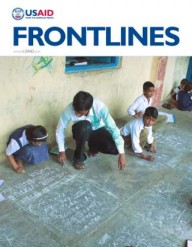

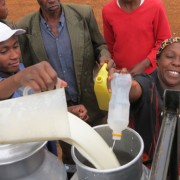
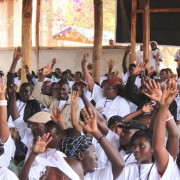
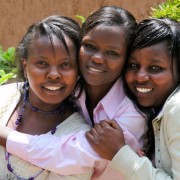
Comment
Make a general inquiry or suggest an improvement.